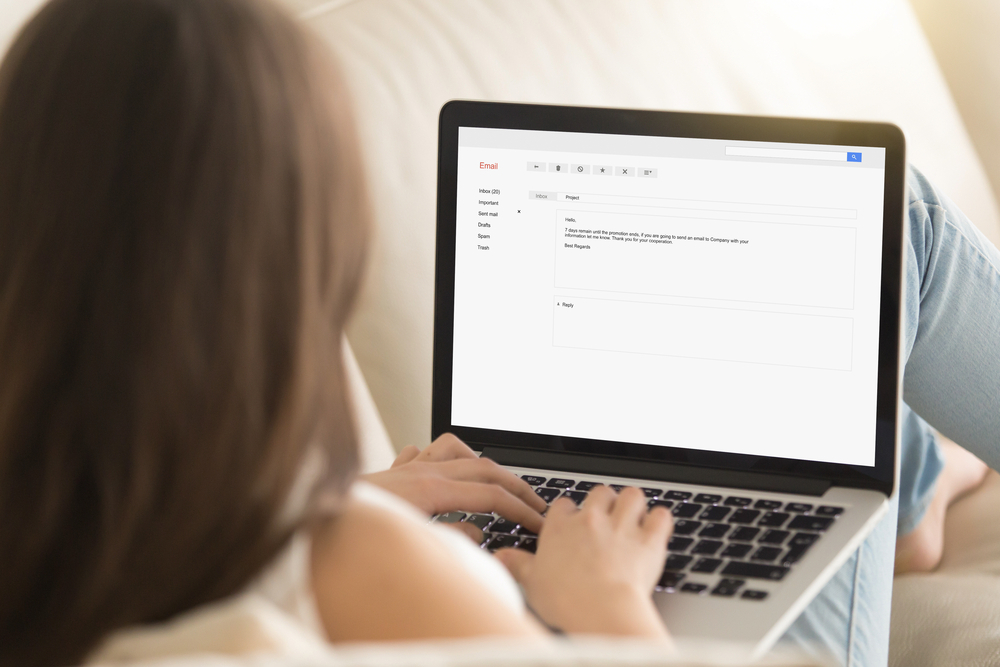Prospects, whether they are employers, teachers, businessmen, or clients, are so used to receiving emails, it is vital to make yours eye-catching. One way to do so is by swapping the overused, ‘I look forward to hearing from you’ phrase with better phrases such as, ‘hope to hear from you soon’ or ‘looking forward to your reply’.
Standing out from others will increase the odds of you eliciting a response. So, you need to use an I look forward to hearing from you alternative. Here are some ideas:
1. Use a CTA (Call To Action)
When you are communicating with someone via email, using a ‘looking forward to hearing back from you’ puts you in a subservient position instead of an active one. So, then you have to wait passively for your recipient to respond instead of replying to your small and simple email, the recipient might be clueless about what you want from him/her.
Instead, use a Call To Action (CTA) to make the recipient do a certain action such as:
- I intend to give this presentation by Saturday. Would you kindly tell me your opinion by Tuesday?
- Let’s meet each other at Papa John’s for brunch. Does 3:30 p.m. on Wednesday work for you and Sarah?
- Would you like us to forward you our research proposal when it’s finalized?
- Please forward this email to your colleagues. Thank you!
2. I’m Eager/Keen to Receive Your Feedback
In case of no hard deadlines, don’t go the route of looking forward to hearing from you formal letter. Instead, end your email with a request for feedback. This ending works the best when you want a reply, but don’t necessarily expect it.
For example,
“I appreciate your thoughts, so tell me what you think!”
3. I Appreciate Your Quick Response
This, I look forward to hearing from you alternative, works best when you need an answer ASAP, but there’s no time constraint.
However, it can sound pushy, if used, in the wrong context. If you are using a friendly tone, then use this to sign off. However, if your tone is businesslike, this ending could seem a bit like a stern warning that you expect a reply.
4. Could You Help Me Find the Solution/Answer?
Humans like to help others especially when they are asked for help. Leverage this important information to your advantage. This closing works the best when you are contacting a professor for supervision and are hoping to make initial contact.
Writing an email saying, “I’d like to get in contact with the teacher who specializes in XYZ research, but I don’t know who to contact. Could you refer someone to me?” sounds persuasive. Instead, write something along the lines of, “Are you the head professor of XYZ lab at ABC College or University?”
5. Always Happy/Delighted to Hear From You
This one is informal and breezy AKA the best closing for people you have an ongoing conversion with. For example, your new supervisor. It doesn’t insist on a reply, so you can use it when you are just updating them on something and don’t necessarily need a reply.
6. Please Reply At Your Earliest Convenience
When communicating in a
professional environment, instead of using, ‘looking forward to hearing from you’, use this closing to convey urgency to people you don’t know particularly well. It has a direct tone along with formality and politeness. So, you can use it to show urgency without asking for an instant reply. Plus, it offers the recipient some flexibility while conveying that a timely response would be better.
7. Keep Me Updated/Informed
Sometimes, when working with class fellows or colleagues you need a response when there is an update. In such cases, it is appropriate to close your email with an ending like this. You can be as insistent as you want and need to be. If it’s important that you get updates regularly, go ahead and say so.
8. Could You Return All Project Feedback by Thursday?
Remove the guesswork from your timeline by providing your recipients a deadline to meet. Such a closing prevents your recipient from staring an email for later. Instead, you tell them your expectations upfront and provide them a goal to meet.
9. I Await Your Instant/Immediate Response
This closing means that you mean business and you need a response yesterday. Use this closing when the recipient is late and you need no-nonsense. But keep in mind that this closing has a serious tone. Using this closing is basically the equivalent of glaring at a person while tapping your foot. Try to use it sparingly. Who knows, maybe a colleague had an emergency. Better safe than sorry.
10. Write Soon!
This closing is perfect for less formal emails when you want to have a cheerful sign-off. It lets your recipient know that you’d appreciate a response from them without demanding anything. Use it for
friendly emails, and keep it away from business emails.
Conclusion
Whether you want to improve your formal communication, or you just want to make sure that a professor, and a potential supervisor, replies to you, these closings will work wonders for you. So, no more ‘I look forward to hearing from you’. Change up your email closings.
Find Top Tutors in Your Area
Find A Tutor

